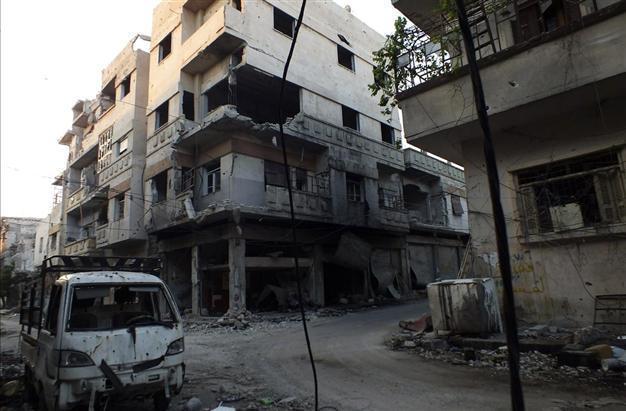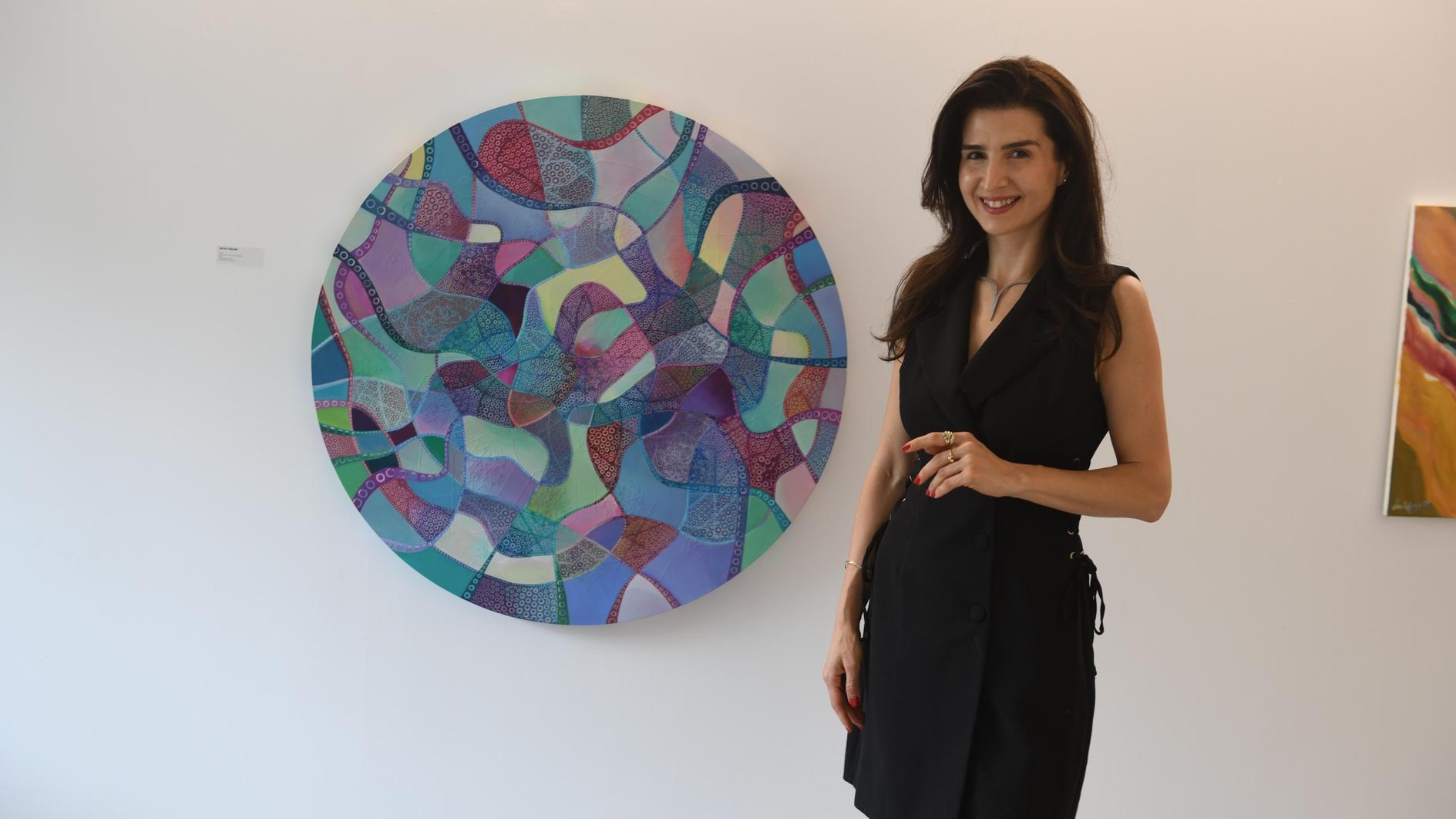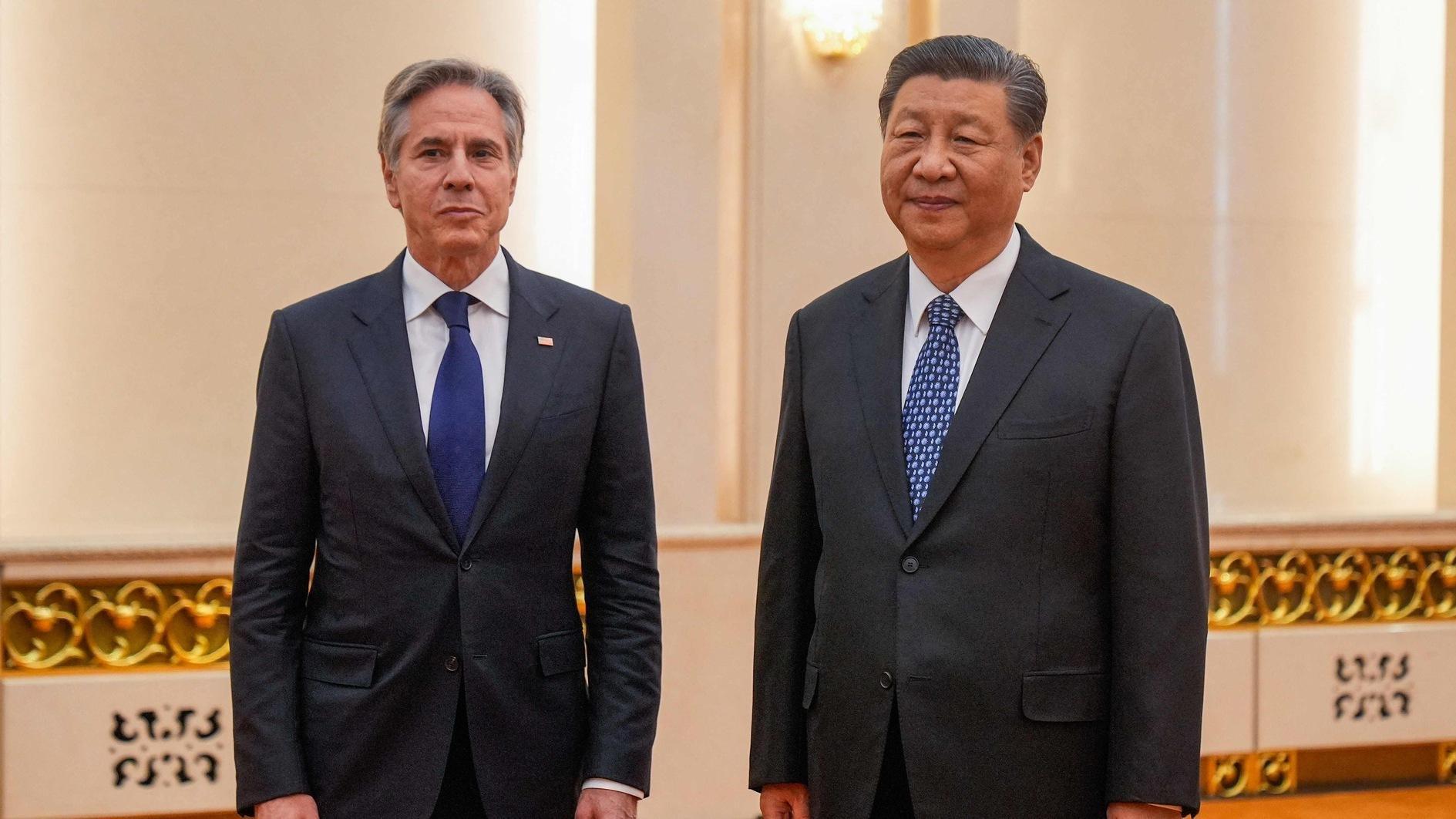Syria to hit back 'painfully' if Israel strikes again
DAMASCUS- Agence France-Presse

A damaged pick-up truck is seen on a street filled with debris in the Khaldiyeh district in central Homs May 9, 2013. REUTERS/Yazan Homsy
Syria will "respond immediately" to any new Israeli attack against its territory, its deputy foreign minister told AFP on May 9, after two reported Israeli strikes on military targets last week.In an exclusive interview in the Syrian capital, Faisal Muqdad also said Syria is ready to receive a UN team to investigate claims of the use of chemical weapons in the country's conflict.
"The instruction has been made to respond immediately to any new Israeli attack without (additional) instruction from any higher leadership, and our retaliation will be strong and will be painful against Israel," Faisal Muqdad said.
Senior Israeli sources said the strikes targeted weapons bound for the powerful Lebanese Shiite group Hezbollah, a close ally of Damascus. Muqdad denied that.
"They absolutely did not achieve their objective and they lied when they said they are targeting Hezbollah," he said. There is "no way Syria will allow this to happen again," he added.
Israel reportedly targeted military sites near the capital Damascus early on May 3 morning and again early on May 5 morning, with at least 42 soldiers reported dead in the second strike.
The strikes last week were the third time Israel is thought to have hit sites inside Syria since the beginning of an uprising against the regime of President Bashar al-Assad in March 2011. That first was in January of this year.
UN 'to blame' for failure to lauch probe
Muqdad meanwhile said Assad, like his US counterpart Barack Obama, believes the use of chemical weapons would be a "red line" in the country's conflict.
"We were ready and we are always ready, right now, to receive the delegation that was set up by [UN chief] Ban Ki-moon to investigate what happened in Khan al-Assal," Muqdad said.
Syria first asked for the inquiry shortly after accusing opposition rebels of using chemical weapons at Khan al-Assal near Aleppo on March 23 in an attack in which authorities say more than 30 people died.
There have since been unconfirmed reports of the possible use of chemical weapons elsewhere in the strife-torn country.
"Once the investigation in Khan al-Assal proves to be professional, and proves to be honest and neutral, we will let them look into other issues," said Muqdad.
The UN says Damascus has refused the deployment of investigators, while Britain and France have also accused the Syrian regime of using chemical weapons in Khan al-Assal and in Homs, in central Syria, on December 23 last year.
"The rumours started that Syria prevented the mission from coming, which is absolutely incorrect, crazy and unacceptable," Muqdad said. "This is a big lie." A UN commission of experts was mandated at the end of March by Secretary General Ban Ki-moon to investigate the possible use of chemical arms in Syria. The UN said the Syrian regime was responsible for blocking the experts' entry.
In late April, the UN chief a new plea to Damascus to stop blocking the international inquiry, adding that he "takes seriously" US reports that such weapons were probably used. He said an investigation should "proceed without delay and without any conditions".
But Muqdad blamed Britain, France and insurgents fighting Assad's regime for putting pressure on the UN to stop the commission from deploying. "It is not that we in Syria were delaying or preventing the team established by the secretariat of the UN... it is the secretariat, under instruction and pressure from Britain, France and the armed groups. They don't want to come," he said.
"Many people speak about red lines, including President Obama, against the use of chemical weapons. This is also a red line for President Assad. President Assad will never, ever use chemical weapons, if Syria possesses them, against the people in Syria," said Muqdad. "So we are sure those who used chemical weapons are the others," he added, referring to insurgents.
Syria to supply Hezbollah with 'game-changing weapons'
"They absolutely did not achieve their objective and they lied when they said they are targeting Hezbollah," he said, adding there is "no way Syria will allow this to happen again." In Beirut, Hezbollah chief Hassan Nasrallah said Syria would supply his movement with "game-changing weapons" and open up the front to "resistance fighters" against the Jewish state on the Golan Heights.
Israel captured the Golan from Syria in the 1967 Six-Day war and subsequently annexed it.
"You Israelis say your objective is to stop the capability of the resistance (against Israel) from growing... but Syria will provide (Hezbollah) with game-changing weapons it has not had before," Nasrallah said in his televised speech.
"If you (Israel) see Syria as a corridor of arms to (Hezbollah), Syria will provide the resistance with those arms. This is a highly strategic decision." Israel has repeatedly warned it will intervene to prevent the transfer of advanced weaponry to Hezbollah, with which it fought a devastating 2006 war.
Hezbollah is battling alongside Assad's troops in several parts of the country.
The regime is relying increasingly on its alliance with Hezbollah, and Lebanese newspaper Al-Akhbar quoted Assad on May 9 as saying Syria would "give Hezbollah everything" for its loyalty.
















